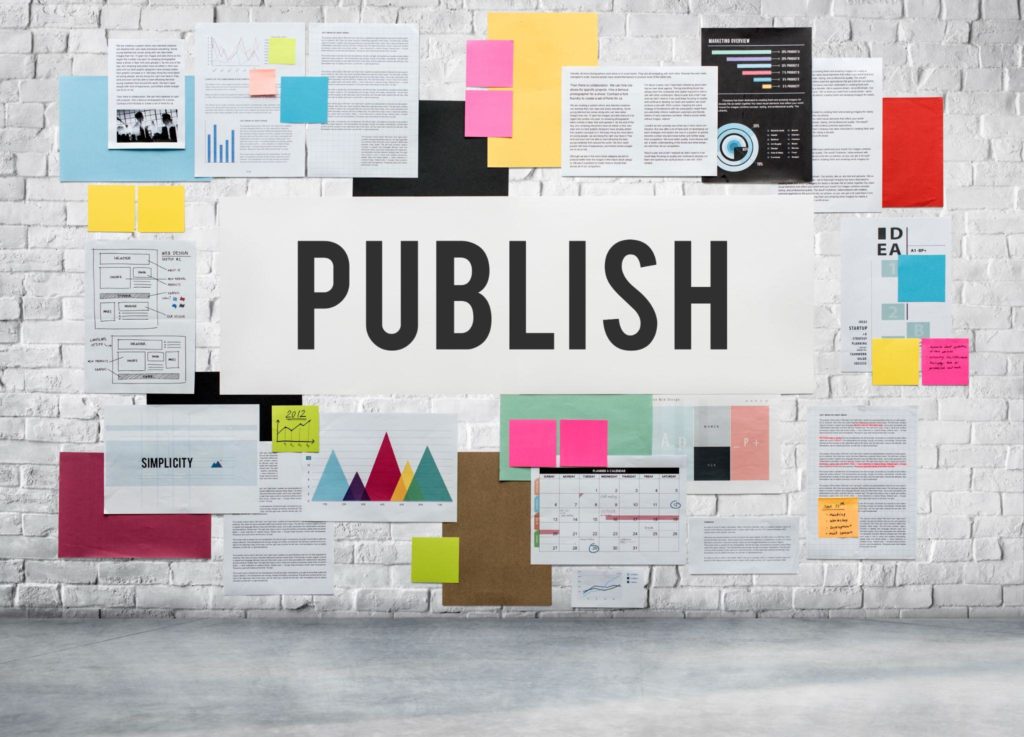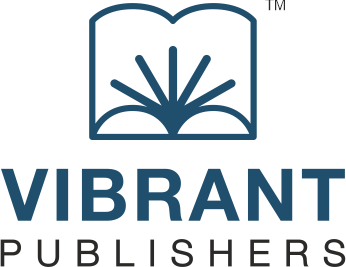Blogs On Management

Why You Should Publish With Vibrant Publishers
on Jun 19 2024
Introduction
You’ve read about the green signals and pitfalls to watch out for in general while deciding to choose an academic publisher. (If you haven’t, you should read Tips for Choosing an Academic Book Publisher). Now, you might want to publish with us and are wondering what’s the next step—what are the benefits of publishing with Vibrant Publishers? Or maybe you want to know why you should choose Vibrant Publishers over traditional or self-publishing. Whether you are a first-time author who will need guidance through the entire process of publishing, a seasoned author, or someone looking out for the right publisher, this blog is for you.
#1: Developmental Support
At Vibrant, we work with the author from start to finish to ensure that their work is fine-tuned to achieve the best results. Our editors discuss ways to improve the material and advise the authors on the type of content that the potential readers would like to see. That’s why, even if you’re a first-time author, you don’t have to be daunted by the process of writing—we’ll guide you through the entire process in a step-by-step manner.
#2: Flexible Timelines
Publishing in any field, whether it’s academic or commercial book publishing, is a lengthy process with several procedures involved. But with continuous and ongoing support from the publisher, this process becomes significantly easier for the author. At Vibrant Publishers, authors are provided with all the support they need, whether they’re writing the book from scratch or already have a full manuscript prepared. We’re very flexible with our timelines and understand that delays are sometimes inevitable. That being said, our timelines are carefully planned keeping in mind the author’s commitments and most authors are able to finish well on schedule.
#3: Peer Review System
Peer reviews are what refine a book from its status as an initial draft to a complete manuscript. Peer reviews might come from professors specializing in the same domain as the author, industry experts who have years of practical experience in their field, or subject-matter experts with in-depth knowledge about the topic. They review the author’s draft and suggest improvements for clarity, topics that should or should not be included, and assess the contribution the work will make to the field. We have excellent peer reviewers who provide impartial and useful advice to authors. Additionally, every book is submitted for review at least 4-5 months before publication, to professional reviewers like Publisher’s Weekly, Booklist, and Library Journal.
#4: Editing the Book
As an author, your work might appear perfect. But it’s necessary to fine-tune the material so that the final version is a complete, informative book. Editors can add value to your work by providing suggestions for improvement, style of writing, and grammatical corrections. Our editors work with the author to ensure that their book contains the right tone, content, and direction, as well as language that is easy for readers to understand.
#5: Marketing
Marketing is an important aspect of the publishing process and in many cases, it starts even before the book is released. Although our focus is academic publishing, our books are not limited to a specific market. We target multiple audiences for our books through press releases, email campaigns, and social media. We publish through online and offline distribution channels like Ingram, Smashwords, Kindle, and Baker and Taylor, and reach out to more than 10,000 libraries across the globe. We also connect with professors worldwide, who have adopted many of our books for their courses. As you can see, our marketing efforts have an extensive reach.
#6: Sourcing Images and Illustrations
If you’re wondering about where the images and illustrations for your book come from, we’ve got you covered. Unlike publishers that ask you to source images and obtain copyright permissions yourself—or pay a fee for the same—we don’t ask the author to take on the hassle of obtaining images. You can focus on transferring your knowledge to the paper and we’ll take care of the rest.
#7: Presentation
Our books follow a very compact, attractive layout, which makes it easy to read and absorb the material. Once again, we don’t require the author to format the book—we do it ourselves. The kind of layout that we’ve come up with for our books, ensures that you’re not just reading through pages of information but are enjoying the journey of learning.
Image caption: Take a look at our book, Winning Strategies for the ACT, before and after formatting the content.
#8: Scholarly Reputation
As a first-time author, professor or industry expert, having a book published will boost your academic reputation as a scholar. You’ll gain from having your work published with us—the industry recognition your book will receive from peers and professionals will help you establish your reputation as an author. Ultimately, your work might even win awards—we submit books for the IPPY Awards, IBPA Awards, Eric Hoffer Awards and many more, depending on the category of the book.
CONCLUSION
Publishing a book is not an easy feat, but with our extensive support and guidance, the process becomes an enjoyable learning experience instead of a hurdle. We are committed to publishing the best textbooks, test prep material, and interview preparation books for students, professors, and professionals, with a human touch that personalizes the experience of publishing. It’s not just the initial months of publishing that we focus on—you can expect a lifetime of support, whether it’s in terms of marketing, reach, promotions, or new editions of the book.
At Vibrant Publishers, we’re always on the lookout for good authors to deliver quality academic content. If you have a book proposal in mind and would like to contact us, fill this form. If you want to understand the important aspects of publishing, see Tips for Choosing an Academic Book Publisher.

Tips for Choosing an Academic Book Publisher
on Jun 01 2024
Introduction
Writing a book is a difficult process, whether it is for a commercial or academic audience. From finding a writing routine to actually drafting the book, authors—especially first-time writers—might feel daunted by the complex procedures involved. But signing a contract with the right publisher makes this process much more rewarding.
We’ve compiled a list of things as well as quick tips you need to keep in mind while choosing the right academic publisher for your book. If you are looking to write your first book and are searching for the right publisher, dive right in.
#1: Approach Your Book From the Right Perspective
Think about why you want your book to be published. Writing and publishing an academic book successfully can be a great supplement to your academic career. As a scholar, you’ll want your work to be published and people to recognize its merits. If you are proud of your work and want it to be appreciated in academic spheres, you’re on the right track. But if you’re only intent on commercial profits, then an academic publishing career might not be the best fit for you—you might want to think of approaching commercial book publishers.
Tip: Aim to add to your academic accolades, not to start a potential business venture.
#2: Every Publishing Press is Different
It’s tempting to choose the most popular publisher because you want your book to be famous. But that might not be the best approach. Consider the profile of the publisher who has solicited you or whom you’re planning to send your proposal to. What kinds of books do they publish? Within academia, what is their focus—towards the humanities or sciences? Do they have an international market? Your book proposal should be in line with the type and style of publications produced by them.
Tip: Don’t focus on the status of the publisher; look at the type of material they publish.
#3: Submitting a Book Proposal
After you make a list of the publishing presses that publish academic books within your field, reach out to them with a book proposal. Sometimes they might reach out to you first. At this stage, you’ll need to provide an introduction of yourself and the work you do, along with a summary of the book and what you will include in it. A summary might talk about the topic of the book, where the evidence has been gathered from, a brief list of sources, and the main argument on which the book is based, among other things. This is needed so that the publisher can decide whether the book fits within the realm of their publications and whether they want to go ahead with your book or not. Additionally, if your book’s topic happens to be related to a popular subject currently under discussion, that will be a bonus.
Tip: Detail your expertise in your subject area and the unique contribution your work will make to the field.
#4: Watch Out For These Red Signals
Don’t be so eager to get your book published that you are willing to agree to any kind of contract. It is easy to be lured by promises of quick publishing—within less than 3 months, for example—and promises that the work will be ‘easy.’ Usually, low-rated publishing presses who approach you over the internet—over instagram or facebook, for example—will try to attract you by making the process of publishing sound easy and effortless. As great as that sounds, it really isn’t true. Publishing is a long process, usually not less than a year, and there are many stages involved before you get the final book into your hands. But it is an extremely rewarding process, so take your work seriously and be willing to put in time and efforts for it.
Tip: Be wary of overly low processing fees and highly ambitious timeframes.
#5: Before the Contract
We’ve talked about publishing being a lengthy and often difficult process. Now you might be wondering—what are the early stages of that process? Once you reach out to a publisher and submit your proposal for the book, the publishers will ask you to submit a detailed proposal of your book if they’re interested in it. This could include one or two sample chapters of the book. At this point, you might have to take back your proposal submissions from other presses. These sample chapters will be reviewed by peer reviewers, depending on which the publisher will decide whether to offer you a contract.
Tip: Look at whether you’re comfortable with the publisher and their communication style—and whether they seem genuinely interested to work with you beyond the obvious commercial gain.
#6: Peer Reviews
The most important people who’ll review your book are peer reviewers. Peer reviewers are professors within your field, industry experts, and subject-matter experts who have in-depth experience of the subject matter of your book. Look for a publisher who offers a good peer review system—this will help shape your book to become the best possible academic material.
Tip: Ask your publisher about the peer review system they offer and who will be reviewing and suggesting changes to your drafts.
#7: Marketing the Book
The marketing of the book is majorly done by the publishing company, but as the author, you have to be involved as well. Ask your publisher what type of marketing channels they use and whether they are looking to promote your book internationally. Publicity is the most important aspect—ask the publisher how they plan to market the book and what are the responsibilities required of you, for example, talking about your book at conferences or promoting it in your institution.
Tip: Be realistic about your expectations; it takes a while for marketing efforts to pay off.
#8: How Much Will You Earn?
Academic books have a very specific audience and are not for the general commercial book market. That can be an advantage as well as a drawback. The advantage is that academic books are always in demand—especially textbooks, test prep and reference material. The flip side is that these books cannot be promoted to a wider or more general audience of readers, as in the case of commercial fiction or nonfiction books. Expect to earn a fair amount—the satisfaction that comes from having this achievement will surpass everything else.
Tip: Your first book might not give you a dramatic increase in income, but you will earn well in terms of gaining publicity and recognition from peers.
CONCLUSION
Don’t shy away from asking advice from academic advisors, colleagues, and senior peers, especially those who’ve already published their work before. You might want to conduct thorough research on the publishing presses available and the terms and contracts they offer before making a decision. It’s all about your perspective- how you approach your proposed book and what are the end goals you have in mind aside from having your book published.
At Vibrant Publishers, we are always on the lookout for good authors. If you are interested in sharing your expertise with us in the form of a book, fill this form.

